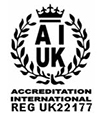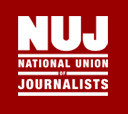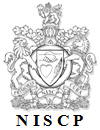Frequently Asked Questions
|
What does the Quotation & Proposal include? How long will the whole process take? Who should the Consultant see on their visit? What happens when the Consultant visits to do the Pre-Assessment and Consultation? How long will the Stage 1 Pre-Assessment and Consultation take? What if I have any questions during the implementation of the systems? What happens if we get delayed in the process due to work loads or staff issues? Do you use independent auditors from Accredited Certification Bodies? Will our company go on a global register? Is the Consultancy Company UKICM Accredited? Do we need to be audited each year to keep Certification? Do I have to stay with the same audit company for the annual surveillance audits? What are Management Standards? Are ISO Management Standards Compulsory? Do well implemented ISO Standards provide a Competitive Advantage? Are Management Standards now required for Tenders and Contracts? Do ISO Standards require regular Internal and External Audits? Why do Companies get certified?
What does the Quotation & Proposal include?The Quotation & Proposal normally includes the cost of the onsite Consultancy visit, Documentation, Support & Audit. This is termed within our Quotation & Proposal as:
How do I pay for it?Your ISO Quotation & Proposal is a fixed fee and payable in 3 easy instalments for your convenience and ease of budgeting. 1st Payment (1/3rd) on order. 2nd Payment Prior to release of your bespoke documentation and 3rd Payment Prior to your Audit or within 6 months of first visit, which ever is the soonest. If we have several companies that require ISO certification, can these all be covered by one certificate?Individual legal entities require separate ISO certification. How long will the whole process take?3 months comfortably, depending on how much time can be dedicated to the implementation of your chosen systems. However it has been achieved in 1 week, with some asserted effort, and has also taken some organisations over a year, due to work load commitments. It all depends on the time and resources you have available and the drive to become compliant to the standard(s). WE ALWAYS WORK AT YOUR PACE. Who should the Consultant see on their visit?The person(s) nominated by your company to implement the ISO standard(s) and personnel who have a good insight into your business activities overall, with the authority to report to senior management. What happens when the Consultant visits to do the Pre-Assessment and Consultation?During a very interesting and enlightening question and answer session, your Dedicated Consultant will gather all the information required to create the key documentation for your company and its unique process. Your Dedicated Consultant will identify any gaps in your existing management system and support you in filling them. What Processes will the Consultant check for?They will be checking your operational process, for instance, to see that your orders are managed in such a way that at each stage orders are traceable and that there is accountability throughout the process so you are able to pin point where, how and why things have gone wrong – if they do go wrong. Also they will be looking for several mandatory procedures that are required to ensure conformity to the standards. Don't worry if you haven't got them in place. It's our job to do that for you. For example, do you have a complaints procedure in place and how does it work? How long will the Stage 1 Pre-Assessment and Consultation take?Stage 1 is usually completed on one day. However, it can take longer depending on the size of the organisation and number of standards required. We will give you a clearer idea of this time when we book your appointments. Do I have to put together the manual and Policy?No, your Dedicated Consultant will do this for you along with all required mandatory procedures and will also supply you with any forms you may need. All this is emailed to you after the Pre-Assessment stage. What if I have any questions during the implementation of the systems?There is telephone and email support from your Dedicated Consultant throughout the whole process. You also have full support from the office team at UKICM. Remember: If you're not sure just ask. No question is a Silly Question! What happens if we get delayed in the process due to work loads or staff issues?As part of our Dedicated Support Service we will occasionally contact you to offer support with the implementation of your systems and give clear guidance and encouragement to get the job done. Do you use independent auditors from Accredited Certification Bodies?Yes, we only use Independent Auditors from Accredited Certification Bodies, primarily ASCB(E), AIUK and occasionally UKAS if required. Will our company go on a global register?Yes, and this will be verifiable on line from anywhere in the world. Is the Consultancy Company UKICM Accredited?Consultancy companies do not become Accredited. This is the requirement for any bona-fide Certification body. However, UKICM's auditing arm is accredited to AIUK. What does the Auditor do?The Independent Auditor will check your company's documentation and ensure the processes you have implemented are working appropriately. They will also look for evidence to back this up including internal audits, management meeting minutes, training logs and supplementary records etc. What if I fail the audit?In the unlikely event that there are any major non-conformances, you will agree a set amount of time with the Auditor to correct them. As before, UKICM will be on hand to help you do this….Remember you are never alone. Once sorted you will email the required evidence to the Certification Body for review and the audit will be complete and certification issued. Do we need to be audited each year to keep Certification?You are required to keep your chosen systems maintained from year to year to prove you are working to the standard. Regular up-keep is simple, if time is allotted, and will ensure on going mandatory Surveillance Audits go well. Do I have to stay with the same audit company for the annual surveillance audits?You are not obliged to stay with any one certification body. However once you have passed the Certification Audit it is very rare for organisations to swap. What is Certification?Certification is the official document that an organisation receives from a bona fide certification body to evidence the conformity to the standard of the organisations systems. What is Registration?An organisation gaining Certification should be entered onto a 'Register of Certified Organisations' for the time frame of the Certification. This is called 'Registration'. These details should be available for any enquirers to see to verify that the Certification is genuine. Who are ISO?ISO is the acronym for The International Organisation for Standardisation. ISO is the world's largest developer and publisher of International Standards and is made up of a network of 163 national standards institutes from around the world with one member from each participating country. ISO Central Secretariat is based in Geneva Switzerland, where it coordinates the systems. The UK member is the British Standards Institute or BSI as they are more commonly known. ISO say:
ISO is a non-governmental organisation and is designed to act as an impartial conduit between the public and private sectors. This ensures ISO is able to reach a rounded consensus on most out-comes that meet both the needs of business and the wider requirements of society. A very common mistake (when people are talking about getting certified to an ISO standard) is the use of the phrase 'ISO Certification' which implies that ISO offer Certification. This is in fact a myth and one strongly challenged by ISO. You may be surprised to know that there is actually NO such thing as 'ISO' Certification.
Despite this fact, many Certification Bodies appear to offer 'ISO Certification' and choose not to argue or explain the inaccuracy to uninformed enquirers, due to the confusion it can cause when challenged. Certification Bodies provide Certification to verify that organisations systems have been independently and impartially assessed and audited and meet the defined requirements of the chosen ISO Standards. Find out more about ISO at www.iso.org What is Accreditation?Did you know that 'ISO Accreditation' does not actually exist? What people really mean is 'ISO Certification'. Oddly enough there is actually no such thing as 'ISO Certification'. Nevertheless many Consultants and Certification Bodies will still offer 'ISO Certification' and choose not to explain this very common misnomer to potential clients through risk of confusion. ISO do not issue, authorise the issue of, or recognise any type of certification. What we are in fact looking at is a 'Certificate' from an Independent Qualified Third Party which states that your 'ISO Systems' have been Independently and impartially audited by a Qualified Auditor and have met the requirements of the particular ISO Standards in place. In most situations this is all that is required in order for an organisation to prove to their clients that their management systems have been externally and impartially audited. In some circumstances existing clients or potential clients might request that both Audit and Certification are provided by an Accredited Certification Body, which has itself been independently audited, certified and accredited by one of the only three recognised UK Accreditation Bodies which are AIUK, ASCB(e) and UKAS. The Certification an Accredited Certification Body holds is called 'Accreditation' which is the qualification of the Certification Body which assures you that they are a fit and proper organisation to carry out audits and provide valued and accepted certification. Gaining bona fide accreditation from AIUK, ASCB(e) or UKAS is a major achievement for any Certification Body and takes a considerable amount of time and has substantial costs attached to it. This 'Accreditation' is achieved when the Certification Body is able to demonstrate by means of External and Impartial audit by AIUK, ASCB(e) or UKAS that they work to the requirements of ISO 17021:2011, which is the International Standard for 'Accredited Certification Bodies'. Remember: Certification Bodies get 'Accredited' by Accreditation Bodies like AIUK, ASCB(e) or UKAS and Certification Bodies issue 'Certification' to organisations they have audited. What are Management Standards?ISO Management Standards are recognised internationally and used as a respected and trusted bench mark for the standardising of service, process, regulation and production all over the world. Management Standards are based on the established and verified 'Best-Practices' implemented by many of the most successful organisations in the world. The five most recognised Management Standards that are implimented today are:
The OHSAS 18001 is not an ISO Standard, however in the absence of an established ISO Health and Safety Management Standard, it is to all intents and purposes the most widely used international recognised standard covering Health and Safety we have. Are ISO Management Standards Compulsory?ISO Management Standards such as ISO 9001 are general and not linked to any legislation. Therefore they are not mandatory. However, they are proven 'best practice' for any organisation wishing to consistently and successfully manage their operations to the highest level. Organisations that implement well managed systems, consistently provide high quality products and services for their customers, continually improving and adapting to ever changing market forces. Do well implemented ISO Standards provide a Competitive Advantage?Independent research clearly demonstrates that the successful and well managed implementation of ISO Standards into an organisation gives a clear and measurable 'Competitive Advantage' over same sector competition. Other benefits include:
Are Management Standards now required for Tenders and Contracts?Most Government, Public Sector Agency and Local Authority Tenders and Contracts now demand ISO Management Standard Certification as a qualifying factor, often even before you are able to tender. The same is now very common for most private Sector Supply Chains. Gain Access to a £230 Billion plus per year Marketplace Certification to ISO management standards enables companies to meet Tender and Contract requirements with Government, Public Sector Agency and the Local Authority sector. The Public/Government Sector is now worth approximately £236 Billion p.a. in the UK alone! The Government is now actively encouraging SMEs (Small to Medium sized Enterprises) to tender for work in this marketplace and launched its 'Backing Small Business' initiative on 1st November 2010. The Government has set its aspiration to target 25% of its £236 Billion p.a. marketplace to be reserved for SME suppliers. Do ISO Standards require regular Internal and External Audits?If a company needs to demonstrate conformity by means of Certification they are required to have their Management Systems externally and impartially audited by a bonafide Certification Body in line with ISO 17021:2006/11 on a regular basis. The frequency of this is determined by the Certification Body and based on the size and activities of the organisation. However an initial certification audit and annual surveillance audits are usual for most SME's. Organisations are expected to internally audit all the key components of their Management Systems, at least once a year, in line with the standard requirements. Why do Standards Matter?ISO's official description of itself includes the following extracts:
What is an Internal Audit?An 'Internal Audit' is one that is undertaken by any company internally, usually by an appointed staff member and sometimes by someone specifically engaged to carry out audits. This is all part of the continual improvement practices widely associated with most standards. It also ensures that Management Systems are tested for compliance against the requirements of the chosen ISO Standards on a regular basis. Although Internal Audits should be undertaken at least once each year, it is best practice to use the Internal Audit Schedule to spread the audits throughout the year. As with external audits, internal auditors are NOT allowed to audit their own work. What is an External Audit?External Audits are carried out by an Auditor or team of auditors from an external certification body to ensure total impartiality and to test Management Systems against the requirements of the chosen ISO Standards. Why do Companies get certified?Companies decide on external certification of their management systems for a variety of reasons. Primarily this is to gain an advantage over their industry competition. Certification in turn, usually leads to more contracts, sales and profit. Secondly certification enhances a company's reputation with customers both existing and potential and instills confidence in both suppliers and staff. Accredited Audit and Certification of an organisations management systems, is a fast and cost-effective way to boost any business, resulting in growth, sales and more profits. |
Remember
No Question is a Silly Question. If you're not sure, Just Ask...and its free 0800 678 3694
















